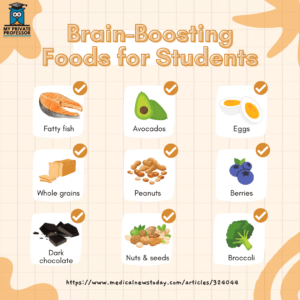Happy back-to-school season! This time always seems to be a whirlwind of chaos, yet with not enough time to do it all. So here’s our handy back-to-school checklist for students and parents.
Clothes, school supplies, food
- Look into the school’s dress policy. Some schools have certain rules when it comes to clothing. Instead of finding out too late that your child needs to wear long pants,
 check out the school website. If you can’t find any information there, reach out to the school principal or grade dean.
check out the school website. If you can’t find any information there, reach out to the school principal or grade dean. - Do a school supplies run before the first day of school. Again, it’s better to be proactive than to wait until the last minute, as the latter option can be quite stressful. Make a list of things you need, and head to your local Staples, Office Depot, or Target.
- Consider various backpack choices. Since you’ll be using this backpack for (hopefully) the whole year, it’s important to pick one that’s both practical and comfortable. If you go shopping in person, try on multiple backpacks and walk around with them. Look in the insides and check out the space, number of compartments, and pockets. If you’re worried about carrying a heavy backpack, consider getting a rolling bag.
- Look into the school’s food policies. On most school websites, there’ll be a page that has information about food policies and information. This will likely provide you with information on what the school serves for lunch, whether or not kids can (or are required to) bring their own lunches, prohibited foods, and options for kids with allergies. If students are going to bring their own lunches, look into easy ways to meal prep before each school week.
Back-to-school routines & organization
- Get back into a bedtime and wake-up routine. Instead of trying to successfully go from waking up at noon to waking up at seven in the morning, consider getting ahead of the game.
Allowing yourself a week or so to adjust will likely make the transition majorly easier. And you can do this for your bedtime routine, too. To make this easier on yourself, set a reminder on your phone so that you’ll be ready to get to bed around 9:00 or 10:00 at night (~sigh~).
- Lay out what you need the night before. It may seem unnecessary, but we all have those mornings where just five (okay, 20) extra minutes in bed can make all the difference in the world. And besides that, setting out your clothes and anything else you’ll need the night before simply means you’ll have more time to do other things—the Wordle, phone a friend, etc.
- Set up an accessible calendar. Even if you’re not the type of student who carries a planner everywhere, having a calendar at home can be super helpful. You can wake up, see that you have a soccer game that evening, and avoid having a panic moment when you realize your jersey’s still in the wash.
Meanwhile, you can share your calendar with your family so that they know when you have a big day coming up. Or so they know that you’ll be a complete stress case on the Friday of your chemistry exam. 
- Organize your backpack & materials. As dorky as it sounds, organizing your school supplies can be excitingly satisfying. And doing this before the first day of school will make you feel SO much more ready. Look at your list of classes and assign each class a binder/notebook. Then, decide where you’ll keep your loose papers and homework assignments. Additionally, consider whether you want to use a pencil case or box.
Homework & studying
- Set up your dream workspace. Environment matters. Think about it: you wouldn’t want to start grinding through a 10-page paper while sitting amongst a crowd of yelling concertgoers, right? Take a little time out of your day to decide where you might want to do homework, and set it up.
Add any little things that bring you a smile or laugh, and make sure the space is as clutter-free as possible, as research finds that physical clutter is indeed linked to mental clutter.
- Review notes every night. When you’re just returning to school, still flooded with sunny summer memories, school can seem…well, foreign. But don’t worry—remember that teachers, too, are transitioning from summer mode, so they’ll hopefully be understanding. Even so, reviewing your notes each night during the first week of school can help you readjust.
- Get contact information from people in your classes. Struggling to complete an algebra problem set due the next day? Having friendly contacts in your contacts can truly save you so much stress. Usually, if you’re having major difficulties with an assignment, chances are, you’re not alone. So get at least one person’s contact information in all of your classes. In turn, avoid the dreadful feeling of going to the teacher with a blank assignment in hand.
Safety & health tips for parents
- Decide on transportation. If your school is walkable from your home, talk to your child about whether they want to walk/bike. As research shows, getting some fresh air in the morning can be a great way to boost your energy and mood before the school day. Just make sure you have a back-up option in the case of a hail storm!

If they’ll be taking the school bus, make sure you’ve got the pick-up and drop-off location down, and find any contact information you might need in the case of an emergency.
- Get the contact information of teachers and administrators. If there ever comes a time where you need to contact the school, save this information and put it
somewhere where you can easily find it. - Go over traffic safety policies. If your child is walking or biking to school on their own, make sure you review some basic safety rules (i.e., traffic lights/signals, crosswalks) And of course, the classic, be sure that they know not to accept anything strangers may offer. Also, make sure that, if they are getting to school on their own, you’ve mapped out a safe route.
- Discuss first-day/week jitters. Last but certainly not least. The back-to-school season can be more stressful for some students than others. In my own experience, I used to get a stomach ache each night before the first day of school. And after years of not knowing why this was happening, my mom and I finally realized that it was a pattern and simply a stress stomach ache.
Some children may not know how to approach the subject of their nerves with you. But still, they might be internally suffering, anticipating that first day. So take some initiative to gently confront your child—and if all is good on their end, hoorah! But if they are, indeed, struggling, then you’ll be thankful that you did the deed. And hopefully, your guidance and comfort can serve as meaningful support for your child during this time.
- Stock the fridge with brain-boosting foods. Research continues to show that there’s a direct relationship between healthy eating and academic success. So consider making a food run to stock up on brain-boosting study snacks.







